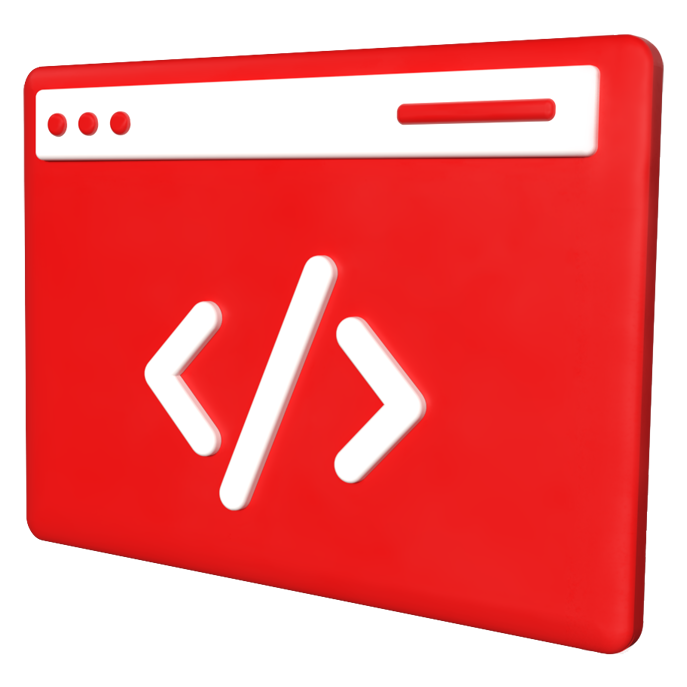

Expertise
Knowledge and expert-driven development and launch
Futuristic
Tech-leading sportsbook development for future readiness
Tailored
Capture market uniqueness with tailored development
10+
Years of Mastery
100+
Development Experts
80+
Sportsbook Launches
Facts and Figures
Game aggregation in numbers
Facts and Figures
Game aggregation in numbers
1000+
Casino games available
100+
Top game providers
1000+
Technical Support
550+
Happy Client
Casino Games Aggregator: Technical Highlights
Add paragraph text. Click “Edit Text” to update the font, size and more. To change and reuse text themes, go to Site Styles.
Comprehensive back-office for managing a business
Fast and easy integration
Diverse reporting system


Game Aggregator Features
The KodeDice Game Aggregator is a hub for thousands of games for your online casino or sportsbook. Beyond simply offering popular gaming content from online casino providers, the game aggregation hub comes with several more perks.
Variety Of Game Types
APIgrator provides a variety of games from the industry's leading developers: slots, live dealer games, poker and other card games, casual games, virtual sports, and more.

Retention Tools
You get access to jackpots, regular bonuses, tournaments, and other promotions from game providers.

Regular Updates
APIgrator has regular updates and bug fixes, as well as new games being released weekly and more game providers added monthly.

Certified and Licensed
Software
We work solely with certified and licensed game developers to secure your project.

Tournament Tool
Create and manage exciting and fully customisable tournaments to attract, engage, and motivate more players with large prize pools

Dedicated Back Office
APIgrator provides a variety of games from the industry's leading developers: slots, live dealer games, poker and other card games, casual games, virtual sports, and more.

Multi-Feed
Real-time acquisition of crucial and comprehensive information that simplifies betting practices for users.
Live Feeds:
Real-time coverage of sports, fixtures, matches, etc., and their respective modulating live odds, scores, lines movements. Managed in-play trading options with adjusted bet limits and odds to enable spontaneous profit booking.
Bet Builder Tools:
Let players create custom bets by combining multiple bet selections from a single event or multiple events, all to drive higher margins and profitability. Enabled with quick cashout system, upscale user engagement and experience.


Backend Configurations
Dynamic backend management of online sportsbook platform that ensures its architectural robustness.
Strong Bet Engine:
Enable efficient handling of betting complexities and activities like odds calculation, payouts, bets management, data integration, and user activity from the backend while ensuring security and compliance in all aspects.
Architecture & Infrastructure:
Deploy sportsbook platform that can handle high spikes of traffic while maintaining modularity, security, and regulated performance. Our sportsbook solutions and backend systems are just made that way.
Frontend Configurations
Attain sportsbook success with the tailored intuitiveness like never-before with the frontend setup
Configurable Interface:
Utilize modern front-end frameworks to build dynamic and interactive sportsbook solutions. Opt for sportsbook frontend developed solely for your brand yet capable of serving global audience using geo-local identifiers and elements.
Cross-Sales Marketing:
Online sportsbook platform developed with complete user-understanding, implying cross-sales marketing and information sharing to navigate multiple offerings of the platform in one stop, thus picking the right content for users.


Future-Tech Capabilities
Competition-ready sportsbook business platform that serves your goals – today and tomorrow.
Migration Services:
Envision the future of your sportsbook business where users experience benchmarked performance even when the sportsbook upgrades to a new platform, infrastructure, or AI features.
Extension & Scalability:
Avail yourself of a sportsbook platform that can serve business scalability goals today and tomorrow. Enable consistent user experience across all your sportsbook business channels – online, land-based, etc., while using a single solution for all.
Game Aggregator Features
The KodeDice Game Aggregator is a hub for thousands of games for your online casino or sportsbook. Beyond simply offering popular gaming content from online casino.
Variety Of Game Types
APIgrator provides a variety of games from the industry's leading developers: slots, live dealer games, poker and other card games, casual games, virtual sports, and more.
Retention Tools
You get access to jackpots, regular bonuses, tournaments, and other promotions from game providers.
Regular Updates
APIgrator has regular updates and bug fixes, as well as new games being released weekly and more game providers added monthly.
Certified and Licensed
Software
We work solely with certified and licensed game developers to secure your project.
Tournament Tool
Create and manage exciting and fully customisable tournaments to attract, engage, and motivate more players with large prize pools
Dedicated Back Office
APIgrator provides a variety of games from the industry's leading developers: slots, live dealer games, poker and other card games, casual games, virtual sports, and more.
Types of Content Integration
One thing can make or break an online casino — the quality of its gaming content. It’s as simple as that. But, which games to take? How many are enough.
Direct Provider Integration
Direct provider integration implies that casinos would have to directly contact the game developers to get hold of their portfolio. The entire process is bound to be marred by heaps of paperwork. Casinos will need to work out the legal documents, regulatory and KYC procedures.

Integration Through a Game Aggregator
Luckily for casino operators, game aggregators like KideDice have come to the rescue. We have developed a one-stop-shop software that puts together tens of thousands of games from hundreds of developers into one aggregation software.


What Makes Your Sportsbook App Contemporary?
Whether a standalone or a unified type, deploy your sportsbook business platform with intriguing elements for operational aids
Strong Data Partnerships
Get partnered with top-rated, authorized, and trusted providers of various data feeds such as global sports and event details, odds, lines, etc.
Additionally leverage content partners for live informational assistance, data analysts for reports management and progress evaluations, and many more tenants, agents, and affiliates for synchronized sportsbook business performance.

Our Sportsbook Data Providers
Acquire the best of your sportsbook integration and data from your partnered sportsbook platform provider - KodeDice
Nomilt City
B2C Support
Grrentube
CRM FOR Affiliates
Quickspin
CRM
Yggdrasil
CRM
Play'n Go
CRM
NetEnt
CRM
Spinomenal
CRM
Evolution
CRM

Belgium Gaming Licence
Belgium Gaming Commission

Belgium Gaming Licence
Belgium Gaming Commission

Belgium Gaming Licence
Belgium Gaming Commission

Belgium Gaming Licence
Belgium Gaming Commission
Geo-Local Regulations for Your Sportsbook
Reach beyond borders with relevant jurisdictional approvals to your sportsbook platform
Crypto License
Forex License
Gambling License
Fintech License
Conclusion: Key Takeaways for Successful Sportsbook Development
Five critical success factors determine sportsbook development outcomes:
-
Proper licensing and compliance framework - Regulatory adherence protects against legal issues and enables sustainable operations
-
Robust technical architecture - Scalable infrastructure handles growth and provides reliable user experience
-
Adequate funding and realistic budgeting - Sufficient capital covers development, licensing, and operational costs for 12-18 months
-
Experienced development team - iGaming expertise reduces costly mistakes and accelerates time to market
-
Mobile-first user experience - Optimized mobile platforms capture 85% of modern betting activity
Development approach selection impacts long-term success. Custom development offers maximum control and profit potential but requires significant investment and technical expertise. White-label solutions enable faster market entry with lower risk but limit differentiation and profitability. Choose based on available capital, technical resources, and business objectives.
Realistic expectations ensure project success. Successful sportsbook development requires 12-18 month commitment and $500k-$2M investment for sustainable operations. Revenue growth typically accelerates after month 6 as user acquisition costs decrease and customer lifetime value increases.
Recommended next steps for aspiring operators:
-
Conduct thorough market research in target jurisdictions
-
Secure legal consultation from iGaming specialists
-
Evaluate development partners with proven sports betting experience
-
Prepare comprehensive business plan with realistic financial projections
-
Begin licensing process early as regulatory approval often determines launch timeline
The sports betting industry offers significant opportunities for well-prepared operators. Success requires balancing technical innovation with regulatory compliance while maintaining focus on user experience and responsible gambling practices.
For personalized guidance on your sportsbook development project, consider consulting with experienced iGaming development specialists who can provide jurisdiction-specific advice and technical recommendations based on your business requirements and budget constraints.
Common Mistakes to Avoid in Sportsbook Development
Mistake 1: Underestimating regulatory compliance costs and timelines Many new operators budget inadequately for legal services and licensing fees, which can add 3-6 months to development timelines and $100k-$500k in unexpected costs. Compliance requirements vary significantly between jurisdictions and often require specialized expertise.
Mistake 2: Choosing inadequate hosting infrastructure Sports betting platforms experience massive traffic spikes during major sporting events. Insufficient server capacity leads to downtime during peak revenue periods, resulting in lost bets and user frustration. Major events can increase normal traffic by 500-1000%.
Mistake 3: Implementing poor risk management systems Weak risk management exposes operators to significant financial losses from betting arbitrage, bonus abuse, and coordinated betting attacks. Professional bettors can identify and exploit vulnerable platforms within days of launch.
Mistake 4: Neglecting mobile-first design With 85% of users placing bets via mobile devices, platforms optimized primarily for desktop provide poor user experience. Mobile apps must handle quick bet placement, live betting, and account management seamlessly.
Pro Tip: Partner with experienced iGaming consultants early in the development process. Use proven third-party integrations for sports data, payment processing, and risk management rather than building everything in-house. This approach reduces development time by 30-50% while ensuring regulatory compliance and operational stability.
What is Sportsbook Development and Why It Matters
Sportsbook development is the comprehensive process of creating online betting platforms that enable operators to offer sports wagering services. This specialized field combines complex technical architecture, strict regulatory compliance, and sophisticated risk management systems to build platforms where users can place bets on sporting events safely and legally.
Sportsbook development refers to creating comprehensive betting platforms that handle everything from user registration to bet settlement. Unlike basic website development, sports betting software development requires specialized components including odds engines, risk management systems, and real-time data integration.
Key terminology in the betting industry:
-
Betting platform: The complete software infrastructure enabling online sports betting
-
Odds engines: Systems that calculate and update betting odds in real time
-
Risk management: Automated systems that monitor betting patterns and prevent significant losses
-
Payment gateways: Secure financial systems handling deposits and withdrawals
-
Regulatory compliance: Adherence to gambling laws and licensing requirements
Development approaches differ significantly:
-
Custom sportsbook integration & development: Building sportsbook software from scratch with full control over features and branding
-
White-label sportsbook solutions: Using pre-built platforms with basic customization options
-
Turnkey sportsbook solutions: Complete packages including software, licensing, and operational support
Technical Architecture Components
Modern sportsbook platforms operate through interconnected systems that must handle thousands of concurrent users and process bets in real time:
Frontend components manage the user interface across web and mobile platforms:
-
Responsive web applications built with React.js or Angular
-
Native mobile apps for iOS and Android using React Native or Flutter
-
Real-time odds display and bet slip functionality
-
User account management and betting history
Backend services handle core business logic and data processing:
-
User management systems with secure authentication
-
Betting engines that validate and process wagers
-
Risk management algorithms monitoring betting patterns
-
Integration APIs connecting to sports data providers and payment systems
Database architecture stores critical operational data:
-
User profiles and betting history
-
Sports events and real-time odds
-
Financial transactions and account balances
-
System logs for compliance reporting
Third-party integrations provide essential external services:
-
Sports data feeds from providers like Sportradar or LSports
-
Secure payment gateways including credit cards and e-wallets
-
KYC/AML verification services for regulatory compliance
-
Advanced analytics and AI tools for user behavior tracking
Measuring Sportsbook Impact in iGaming Industry Worldwide
The sports betting industry represents one of the fastest-growing segments in online gambling, creating significant opportunities for new operators. Global sports betting market reached $83.65 billion in 2023 and is projected to reach $167.66 billion by 2029, representing a compound annual growth rate of over 15%.
Revenue potential drives industry growth:
-
Average operator margins range from 5-7% on gross gaming revenue
-
Successful sports betting apps generate millions in annual revenue
-
Premium features like live betting and bet builders increase user engagement by 40-60%
-
Mobile betting accounts for 85% of all sports bets placed in 2024
Competitive advantages of custom sportsbook platforms:
-
Complete control over user experience and branding
-
Ability to implement unique features that differentiate from competitors
-
Direct relationships with sports data providers and payment systems
-
Scalable architecture that grows with business needs
-
Higher profit margins compared to revenue-sharing white-label solutions
Market dynamics favor new entrants:
-
Regulatory expansion creates new licensed markets annually
-
User demand for innovative features drives platform differentiation
-
Advanced analytics and machine learning improve risk management
-
Integration with fantasy sports and social betting increases user retention
The online betting industry continues evolving rapidly, with modern bettors expecting sophisticated mobile experiences, real-time data, and social features that traditional operators struggle to implement quickly.
Step-by-Step Guide to Sportsbook Development
Step 1: Market Research and Business Planning
Conduct comprehensive target market analysis to understand your competitive landscape and user expectations. Research demographics, existing betting platforms, and regulatory requirements in your target jurisdictions.
Essential market research activities:
-
Analyze competitor features, pricing, and user reviews
-
Survey potential users about desired app functionality and betting options
-
Evaluate sports data providers and their coverage areas
-
Research gambling laws and licensing requirements
-
Assess payment systems popular in target markets
Define your business model based on market findings:
-
Commission-based: Earn revenue from betting margins (5-7% typical)
-
Subscription model: Monthly fees for premium features
-
Revenue-sharing: Partner with affiliates and marketing tools
Create detailed business requirements document (BRD) including:
-
Target audience profiles and user personas
-
Required sports coverage and betting markets
-
Mobile app vs web platform priorities
-
Integration requirements for payment systems and sports data
-
Compliance requirements for target jurisdictions
Step 2: Legal Compliance and Licensing
Research jurisdiction-specific licensing requirements as gambling licenses vary significantly by location. Popular licensing jurisdictions include Curacao (est. $50k-$100k), Malta (est. $200k-$500k), and UK Gambling Commission (est. $300k-$500k+).
Implement mandatory compliance systems:
-
KYC (Know Your Customer) procedures for user verification
-
AML (Anti-Money Laundering) monitoring for suspicious transactions
-
Responsible gambling controls including deposit limits and self-exclusion
-
Age verification systems preventing underage access
-
Data protection measures complying with GDPR and local privacy laws
Secure necessary gambling licenses through the following process:
-
Choose target jurisdiction based on business model and target markets
-
Establish legal entity and banking relationships in licensed territory
-
Prepare comprehensive license application with business plans
-
Submit technical documentation and compliance procedures
-
Undergo regulatory review process (3-12 months typical)
-
Pay license fees and ongoing regulatory charges
Legal services and ongoing compliance require dedicated resources:
-
Legal consultation from iGaming specialists ($50k-$200k annually)
-
Compliance officer roles for ongoing regulatory adherence
-
Regular audits and reporting to gambling authorities
-
Insurance coverage for operator liability
Step 3: Technical Architecture and Development
Choose appropriate technology stack based on scalability requirements and team expertise:
Frontend development options:
-
Web platforms: React.js or Angular for responsive design across devices
-
Mobile apps: React Native for cross-platform or native iOS/Android development
-
Real-time features: WebSocket connections for live betting and odds updates
Backend infrastructure requirements:
-
Server technology: Node.js, Java, or Python for handling concurrent users
-
Database systems: PostgreSQL for transactional data, Redis for caching
-
Cloud hosting: AWS, Google Cloud, or Microsoft Azure for scalability
-
API architecture: RESTful services with microservices for modularity
Develop core platform modules systematically:
User management system handles registration, authentication, and account security:
-
Multi-factor authentication for enhanced security
-
KYC document upload and verification workflows
-
Account balance management and transaction history
-
User preferences and betting limits configuration
Betting engine processes all wagering activities:
-
Real-time odds display and automatic updates
-
Bet validation and duplicate prevention
-
Live betting with in-play odds adjustments
-
Bet settlement and payout processing
Risk management system protects against significant losses:
-
Automated monitoring of betting patterns
-
Detection of arbitrage opportunities and suspicious activity
-
Dynamic bet limits based on event risk
-
Real-time alerts for manual intervention
Payment gateway integration enables secure financial transactions:
-
Multiple payment methods including credit cards, e-wallets, and crypto
-
Instant deposits and fast withdrawal processing
-
Fraud detection and chargeback prevention
-
Multi-currency support for international users
Step 4: Testing and Quality Assurance
Comprehensive testing ensures platform reliability before launch. Quality assurance must cover functional testing, security audits, and performance under load.
Execute systematic testing phases:
Unit and integration testing validates individual components:
-
Test all betting functions including placement, modification, and settlement
-
Verify payment processing and user account management
-
Validate odds integration and real-time data updates
-
Test mobile app functionality across different devices
Performance testing confirms platform stability:
-
Load testing with thousands of concurrent users
-
Stress testing during simulated major sporting events
-
Database performance under high transaction volumes
-
API response times for third-party integrations
Security audits protect against vulnerabilities:
-
Penetration testing by certified cybersecurity firms
-
Code review for common security flaws
-
Data encryption verification for user information
-
Payment gateway security compliance testing
User acceptance testing (UAT) involves real users:
-
Beta testing with selected users providing user feedback
-
Usability testing across different demographics
-
Mobile app testing on various devices and operating systems
-
Documentation of bugs and feature requests
Step 5: Launch and Go-to-Market Strategy
Deploy platform infrastructure to production environment with monitoring and backup systems:
-
Cloud deployment with auto-scaling capabilities
-
CDN setup for fast global content delivery
-
Database replication and automated backups
-
Real-time monitoring and alerting systems
Implement analytics and tracking for business intelligence:
-
User behavior analytics with tools like Mixpanel
-
Sports betting-specific metrics including bet volume and margins
-
Customer acquisition cost and lifetime value tracking
-
Real-time dashboards for operational monitoring
Execute marketing launch strategy targeting your audience:
-
SEO optimization for sports betting-related keywords
-
Paid advertising on Google, Facebook, and sports websites
-
Affiliate partnerships with sports media and betting tipsters
-
Free bets and welcome bonuses to attract new users
-
Social media marketing engaging sports communities
Provide comprehensive customer support:
-
24/7 live chat and email support
-
Comprehensive FAQ and help documentation
-
Mobile app tutorials and betting guides
-
Responsible gambling resources and support contacts
User Guide to Sportsbook Development & Launch
Discover why a turnkey online casino could be a great choice for your iGaming business.
Your Complete iGaming Assistance at KodeDice
Explore a lot more at KodeDice for your full-fledged iGaming business development
03
A dedicated and integrable tool for your iGaming solutions that manages affiliates and agents' information at one place.

100% Ownership
KodeDice’s development principles pillar on sole ownership fundamentals, thus providing you the whole software control and code.

No Revenue Share
We demand for no share of your gaming revenues and profits post deployment, thus keeping transparency in relationships.

Quick Market Entry
Immediate support and on-spot assistance are what we aim to provide, thus making instant launch support effortlessly possible.

Dedicated Support
Hire sportsbook developers from KodeDice and we will ensure continuous assistance even after launch, to keep your performance on mark.
Why KodeDice?
When it comes to developing fully innovative and feature-filled iGaming solutions, KodeDice has become a popular name among business thinkers and operators for its splendid services and innovative solutions.
What our clients say

5 / 5
Rating
“Working with KodeDice has been a fantastic experience. Their casino platform was exactly what we needed—robust, scalable, and tailored to our specific requirements. From managing players to integrating top-notch games, they’ve made everything seamless. I couldn’t be happier with the results.”
John Peterson,
CEO


5 / 5
Rating
“The team was so supportive and made sure everything ran smoothly. I’m so glad we chose them for our project.”
James Hall
CTO & Co-Founder


5 / 5
Rating
“I couldn’t have asked for a better partner than KodeDice. They took our vision and built an incredible casino platform that’s perfect for our needs. Integrating games and payment systems was a breeze, and their team was with us every step of the way.”
Samantha Greene
Co-Founder


5 / 5
Rating
“Amazing team, they've taken over crucial tasks like fraud prevention and compliance, which has freed up so much of our time. Their professionalism and dedication are unmatched, and it’s been a pleasure working with them.”
Mark Rivera
COO


5 / 5
Rating
“Sportsbook platform is so stable and easy to use, and their advanced player segmentation features have really helped us connect with our users. The team was so helpful throughout the process, and I’d recommend them to anyone.”
Emily Roberts
Production Manager

Client Collaborations
We’ve had the privilege of working with some of the most innovative and successful brands.








A sportsbook is an online betting platform which offers a wide range of sports events, fixtures, matches, and leagues to place bets on and win. What makes a sportsbook different from a betting website is its wide range of management tools including PAM, CRM, CMS, bonus engine, and more for one-stop experience.
Sports betting as a phenomenon is legal in many parts of the USA, the UK, Europe, and beyond. Moreover, betting is regulated yet not legal in some parts, whereas the remaining regions have legally banned it.
It is, henceforth, crucial to check for legal acceptance of sports betting in your target region. To know more and in detail about your sportsbook legalities, contact KodeDice via our enquiry form. Our experts will get in touch with you at the earliest convenience.
The sportsbook development at KodeDice comes with high-end security inclusions, such as – user authentication, data privacy and security, platform encryption and safety, and more. The security management system we incorporate into the sportsbook management software thus protects its users, data, and the platform itself.
The cost of developing a sportsbook software can vary based on your business requirements such as – the kind or level of customizations, branding setup, level of complexities, type of integrations and scale, and many more.
Expect 15-25% of gross gaming revenue for ongoing costs including cloud hosting, customer support, licensing fees, and third-party integrations. Additional costs include marketing (20-30% of revenue), payment processing fees (2-5%), and sports data feeds ($10k-$50k monthly).
To get your accurate cost and budget estimates for sportsbook development, just fill in this contact form and wait for our experts’ response.
Custom sportsbook development typically takes 9-18 months, including licensing, development, testing, and regulatory approval phases. The timeline depends on feature complexity, integration requirements, and licensing jurisdiction. White-label solutions can launch in 2-6 months but offer limited customization.
The time required to develop a sportsbook platform can vary on the basis of – level of complexities, type of customizations, timeline to launch in the market, and beyond. Find your perfect timeline for sportsbook business launch by asking our experts via this contact form.
Yes, the online sportsbook website we develop comes extendable, scalable, and future proof. This lets you expand your business scale and reach audiences by opting for multiple channels and platforms. Therefore, our sportsbook website is also made extensive to fit in with your sportsbook app development needs; while keeping it unified for management.
Yes, sportsbook software at KodeDice comes with on-demand customization capabilities. This may include customization of – design elements, UI, UX, font colors and themes, art, animation, sports lobby, and whatnot.
Yes, you can use our unique benefits of future-proof, migration-ready, and scalable sportsbook development services to migrate your existing betting solution to a new sportsbook platform without compromising on performance, data, and users.
Yes, you can extend and integrate the sportsbook solution to your existing online casino seamlessly from the expert sportsbook developers’ assistance at KodeDice. Get the advantage of single back-office management for all your systems and brands, thus streamlining your operations and functionalities.
Popular technology stacks include Node.js or Java for backend services, React.js or Angular for web frontends, and React Native or Flutter for mobile apps. Database choices typically include PostgreSQL for transactional data and Redis for real-time caching.
Licensing requirements vary by target market. Popular jurisdictions include Curacao ($50k-$100k), Malta ($200k-$500k), and Gibraltar ($300k+). Some markets like the US require state-specific licenses. License costs include initial fees, ongoing renewals, and compliance requirements.
Security requires multiple layers including SSL encryption, two-factor authentication, fraud detection algorithms, and regular security audits. Payment gateway integration must comply with PCI DSS standards. Risk management systems monitor betting patterns to prevent bonus abuse and arbitrage betting.





